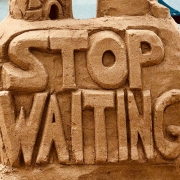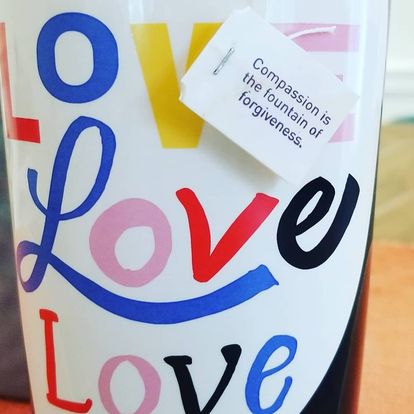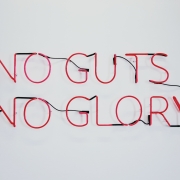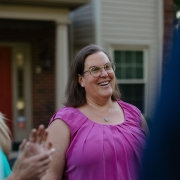How Negative Capability can make us Better Humans
by Ashley Vaden, LMFT
It was one of those Sundays when the weight of an endless to-do list—each task not insurmountable in itself—still managed to overwhelm me. Rather than spiral into endless doom scrolling, I reached for “The Antidote: Happiness for People Who Can’t Stand Positive Thinking” by Oliver Burkeman, and discovered a concept buried in the epilogue that resonated with me deeply: Negative Capability.
Negative Capability, as the philosopher John Keats so eloquently defines, is the ability “to be in uncertainties, mysteries, doubts, without any irritable reaching after fact and reason.” In other words, it’s about becoming comfortable with ambiguity instead of compulsively chasing neat, tidy answers. Burkeman emphasizes this in “The Antidote” by adding “sometimes the most valuable of all talents is to be able to not seek resolution; to notice the craving for completeness or comfort, and not feel compelled to follow where it leads.” In a culture that prizes certainty and quick fixes, learning to sit with the unknown can feel both rebellious and liberating.
What’s most brilliant and somewhat maddening about Negative Capability is that Keats was a mere 22 when he casually penned this concept in a letter after a drunken night with his pal, Dilke. Disgruntled by Dilke’s endless quest for definitiveness, Keats writes , “he will never come at a truth so long as he lives, because he is always trying at it.” Philosophers, historians and the like have been elaborating and musing on the concept of Negative Capability ever since. The neuropsychologist and author Paul Pearsall also seems to have been inspired by Keats’ wisdom, as Pearsall describes a kind of “openture,” where we open ourselves up to experiences of awe and even shock when we let go of the endless struggle for certitude.
I want to be clear that this is not about resigning ourselves to mediocrity. It’s more of an invitation to embrace life’s inherent messiness—recognizing that not ever mystery needs to be unraveled, and there is nothing noble about banging our heads against the wall. These reflections remind us that our relentless pursuit of the truth can blind us to the quiet beauty found in simply experiencing life as it unfolds. Negative here holding the dual meaning of “doing less” or “not doing,” and intentionally and willingly turning toward unpleasant emotions and sensations.
Frankly, I’m quite bored by the endless trope of platitudes—the insistence that we “have it all together.” In moments of vulnerability, the bravest thing we can do is sit with someone in the dark, offering no contrived advice or smug “I told you so’s,” but simply hold space and be present. Whether it’s the labyrinth of modern dating or the relentless demands of work, we’re conditioned to believe that every problem must have a swift solution, that we can manifest and abundance mindset our way out of suffering, and a gratitude practice means the end of our struggles. Yet sometimes the most profound wisdom is found in doing less—allowing ourselves and others to sit with discomfort and uncertainty, instead of feeling pressured to “know” or “fix” things immediately. Sometimes the greatest gift we can give someone is to say “I don’t know why that happened to you” and believe that they have value and deservingness nonetheless.
We might connect with the concept of Negative Capability in our mindfulness practice. By simply learning to sit with discomfort from the perspective of observer, to face the negative emotion and take a step back, by creating distance between ourselves and a preconceived identity and coinciding thoughts, we not only reduce anxiety but also build emotional resilience and adaptability over time. In embracing Negative Capability, we open ourselves to a more authentic way of being—a practice that values the journey over the destination, mystery over resolution, and quiet acceptance over frenetic striving. Perhaps in admitting that we don’t, and may never, have all the answers, we discover deeper and more resilient forms of peace. At the very least, it seems in our best interest to embrace with humility our humanness and discard the arrogance of recycled advice.
I’ve always taken issue with the idea that sociology and psychology are the “soft sciences,” not Nobel Prize worthy in and of themselves because they are less quantifiable and hard to credit to one person vs another. However, I argue that the hardest thing we can do is face uncertainty head on, and hold the hands of our loved ones as they venture to do the same.
 After acquiring my Master’s Degree at the University of Rochester, I returned to my home state of Kentucky. For the past 5 years, I have been serving adults, teens, and couples at The Mindfulness Center. I help clients heal and grow through means of self compassion and self-derived skills. I have felt especially drawn to attachment theory and Internal Family Systems, as I have found them to be the most empowering and effective modalities for complex trauma and relational distress. I hope to help people make use of their suffering and find purpose and meaning through life’s struggles.
After acquiring my Master’s Degree at the University of Rochester, I returned to my home state of Kentucky. For the past 5 years, I have been serving adults, teens, and couples at The Mindfulness Center. I help clients heal and grow through means of self compassion and self-derived skills. I have felt especially drawn to attachment theory and Internal Family Systems, as I have found them to be the most empowering and effective modalities for complex trauma and relational distress. I hope to help people make use of their suffering and find purpose and meaning through life’s struggles.
To schedule an appointment with me click here.








 Megan Bayles Bartley, MAMFT, LMFT
Megan Bayles Bartley, MAMFT, LMFT








